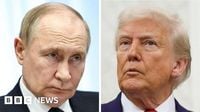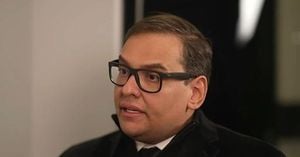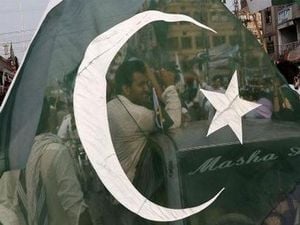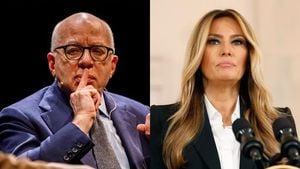One week, it seemed like diplomacy was on the table. The next, the table was flipped over. In a dramatic shift that surprised both allies and adversaries, U.S. President Donald Trump has abandoned his carrot-and-stick approach in favor of wielding the stick alone, imposing sweeping sanctions on Russia’s two largest oil companies and abruptly canceling a highly anticipated summit with Russian President Vladimir Putin. The move marks a sharp escalation in the ongoing standoff over Ukraine and signals a new, more confrontational phase in U.S.-Russia relations.
The saga began in mid-August 2025, when Trump and Putin met in Anchorage, Alaska, for a summit that, according to BBC reporting, "resulted in minimal progress." Despite the lackluster outcome, the meeting was seen as a diplomatic coup for Moscow. Russian state media reveled in the red-carpet welcome for Putin, interpreting it as a symbol of Russia's return to the international stage and the West's inability to isolate the Kremlin. For a moment, it looked like the two leaders were on the verge of a breakthrough—or at least another round of talks.
But the optimism didn’t last. In the days following a reportedly "very productive" phone call between Trump and Putin, the White House announced plans for a follow-up summit in Budapest. Russian commentators, as reported by BBC, portrayed the Budapest meeting as a snub to the European Union, with the prospect of Trump and Putin negotiating over Ukraine without Brussels at the table. Yet, even as Russian state media celebrated, few believed the summit would yield concessions favorable to Moscow.
Then came the abrupt reversal. On October 22, 2025, Trump called off the Budapest summit, telling reporters, "It didn't feel like we were going to get to the place we have to get. So I canceled it, but we'll do it in the future." Flanked by NATO Secretary-General Mark Rutte, Trump expressed his mounting frustration: "Every time I speak to Vladimir, I have good conversations and then they don't go anywhere. They just don't go anywhere." According to CNBC, Trump’s decision came after Russia reiterated its refusal to support an immediate ceasefire in Ukraine—a sticking point that has stymied peace efforts for months.
Trump’s pivot didn’t stop at canceling talks. On the same day, he imposed punishing sanctions on Russian oil giants Rosneft and Lukoil, targeting the financial lifeblood of the Kremlin’s war effort. As the U.S. Treasury Department explained, these sanctions are designed to "harm the Kremlin's ability to raise revenue to fund its war against Ukraine." Treasury Secretary Scott Bessent underscored the administration’s resolve: "The department is prepared to take further action if necessary to support President Trump's effort to end yet another war. We encourage our allies to join us in and adhere to these sanctions."
The European Union quickly followed suit, announcing a fresh round of sanctions that included a ban on Russian liquefied natural gas imports. Kaja Kallas, the EU's high representative for foreign affairs and security policy, told CNBC that the measures sent a "good signal of strength that the U.S. is putting sanctions on big Russian oil companies. It's really depriving Russia of the means to fund this war. It's necessary to end this war."
The Russian response was swift and scathing. President Putin, speaking to reporters, called the new U.S. sanctions an "unfriendly act" and insisted that "no self-respecting country and no self-respecting people ever decide anything under pressure." Former Russian President Dmitry Medvedev, never one to mince words, took to social media to denounce the U.S. as Russia’s enemy. In a post translated by NBC News, he declared, "The U.S. is our adversary and their talkative 'peacekeeper' [Trump] has now fully embarked on the warpath against Russia." Medvedev went further, claiming, "The decisions that have been taken are an act of war against Russia. Now Trump has fully aligned himself with an insane Europe."
Despite the fiery rhetoric, official reactions from Moscow were muted. Russian state media, usually eager to trumpet Kremlin talking points, largely ignored Trump’s criticism and the canceled summit. The Kremlin itself blamed "fake news" for undermining the talks, while Putin’s press secretary Dmitry Peskov had yet to comment publicly as of October 23. Russia’s foreign ministry spokesperson Maria Zakharova did, however, signal a willingness to keep diplomatic channels open, telling NBC News that the ministry was ready to "continue contacts" with the U.S. State Department. Still, she made it clear that "Russia's goals in Ukraine remain unchanged."
Those goals, as articulated by Russian officials and reported by BBC, go far beyond the immediate battlefield. Moscow remains adamant that any resolution must address the "root causes" of the war—a phrase that encompasses demands for a halt to NATO’s eastward expansion and, implicitly, the return of Ukraine to Russia’s sphere of influence. The Kremlin is particularly fixated on controlling the entire Donbas region in eastern Ukraine, much of which it has already seized and occupied. Ukrainian President Volodymyr Zelensky, for his part, refuses to cede the remaining territory, insisting on Ukraine’s sovereignty and territorial integrity.
Inside Russia, the mood has hardened. Some newspapers, according to BBC, have called for continued fighting, arguing there is "not a single reason Moscow should agree to a ceasefire." The war, now in its fourth year, has become a test of wills, with both sides digging in and showing little appetite for compromise. Russian commentators have also criticized Trump as a "capricious negotiating partner," pointing to his sudden shifts in strategy as evidence of unreliability.
The U.S. sanctions package is widely seen as a turning point in Trump’s approach. For much of his presidency, Trump preferred incentives—what diplomats call the "carrot"—over punitive measures. But as negotiations stalled and Russia refused to budge, he opted for the "stick," betting that economic pain would force Moscow to reconsider. Whether this gamble will pay off remains to be seen. As BBC’s Steve Rosenberg put it, "In the game of Trump tug-of-war, Russia is leading again." European leaders, meanwhile, are watching closely, wary of being sidelined but relieved to see a united front on sanctions—at least for now.
As the dust settles, one thing is clear: the diplomatic groundhog day is over, at least for the moment. With talks on ice and sanctions biting, the path to peace in Ukraine looks as fraught as ever. But in international diplomacy, nothing stays frozen for long.




